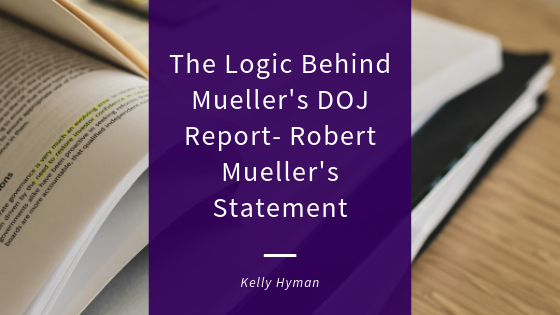At the end of May, Robert Mueller III completed his two-year investigation into improper election influence during the 2016 election. The Trump campaign’s role in the election, possible collusion with Russia, as well as any efforts made by the Trump team to obstruct justice, were examined. Mueller provided some context to the report and the logic that was used to conclude the investigation.
The first portion of Mueller’s statement alludes to the DOJ’s responsibilities as well as to the department’s limitations. Mueller stated, “If we had confidence that the president clearly did not commit a crime, we would have said so.”
There is ambiguity in this statement because Mueller fails to accuse the president of a criminal act. However, it is not possible for the DOJ to make such as accusation. In the United States, an entity like the Department of Justice cannot conclude that a crime occurred. The agency can only investigate the issue and report to the Attorney General and to Congress. Those entities are capable of executing criminal charges against the president and other members of his administration as appropriate. Mueller added, “We did not, however, make a determination as to whether the president did commit a crime.”
Again, this is in keeping the DOJ’s role in investigations and its limitations when concluding whether or not a crime has occurred. As Mueller explained, “It would be unfair to potentially accuse somebody of a crime when there can be no court resolution of an actual charge.”
Since there is little else for Mueller to add, since his role as an investigator is complete, he has chosen to resign “from the Department of Justice and return to private life.”
The report is in the hands of the public, Congress and the Attorney General. Mueller has made it clear that he will not testify before Congress. As one member of Congress told reporters, “…it falls to Congress to respond to the crimes, lies and other wrongdoings of President Trump.”

